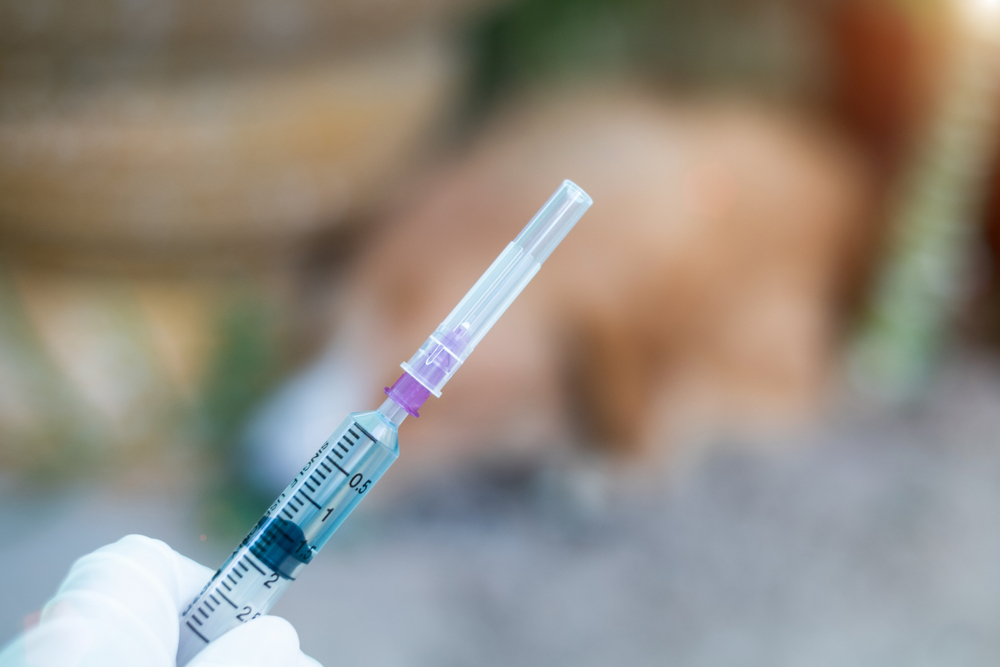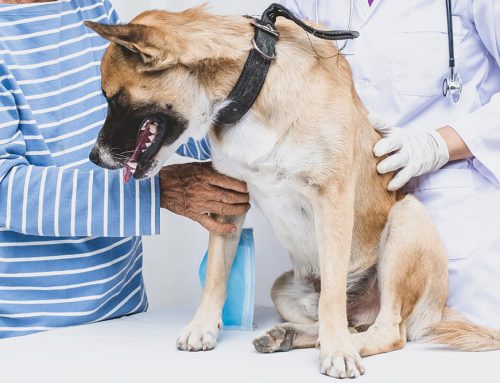Ensuring your canine companion’s health and happiness is your top priority as a dog owner. In addition to food, shelter, and a lifetime of devotion, vaccinations are an essential component of your dog’s well-being. Vaccinations play a crucial role in safeguarding dogs against various diseases, some of which can be potentially fatal or transmitted to people. Understanding the importance of vaccinations and knowing which ones your dog needs are vital for their long-term health and happiness, and our Adamson Veterinary Services team can help.
Core vaccines for dogs
Core vaccines are those that every dog, regardless of lifestyle or environment, should receive. These vaccines protect against highly contagious and potentially life-threatening diseases. The core vaccines guard against:
- Canine distemper virus (CDV) — Canine distemper is a highly contagious viral disease that affects the respiratory, gastrointestinal, and nervous systems of dogs. It can be fatal, especially in puppies and unvaccinated dogs.
- Canine parvovirus (CPV) — Parvovirus is a highly contagious viral illness that attacks rapidly dividing cells within the body, primarily affecting a dog’s gastrointestinal tract. It causes severe vomiting, diarrhea, and dehydration, and can be fatal, particularly in young puppies.
- Canine adenovirus type 2 (CAV-2) — This vaccine protects against infectious hepatitis (CAV-1) and respiratory disease caused by adenovirus type 2. Infectious hepatitis can cause liver damage and other serious complications for dogs.
- Rabies virus — Rabies is a fatal viral disease that affects the nervous system of mammals, including dogs and people. Vaccination against rabies is not only essential for your dog’s health but is also required by law in many regions.
Non-core vaccines for dogs
Non-core vaccines are optional and may be recommended based on your dog’s lifestyle, environment, and risk factors. While not every dog may need these vaccines, they can provide additional protection against specific diseases. Non-core vaccines for dogs are aimed at such diseases as:
- Bordetella bronchiseptica — Also known as kennel cough, bordetella is a highly contagious respiratory infection common in dogs who spend time in boarding facilities, dog parks, or other communal settings.
- Leptospirosis — Leptospirosis is a bacterial disease that can affect dogs and people. Transmitted through the urine of infected animals, leptospirosis can cause severe kidney and liver damage. Dogs at risk include those who spend time outdoors in areas with wildlife or standing water. However, dogs in urban settings are experiencing an increased risk as rodent populations spread the bacteria.
- Canine influenza virus — Canine influenza, or dog flu, is a contagious respiratory infection caused by influenza viruses. It can spread quickly in places where dogs congregate, such as boarding facilities, dog parks, and shelters.
- Lyme disease — Lyme disease is a bacterial infection transmitted by black-legged ticks that can affect dogs, people, and many other species. Depending on your dog’s exposure to ticks, wildlife, and tick habitat, the Lyme vaccine may be recommended.
Vaccination schedule for dogs
The vaccination schedule for dogs typically starts when they are puppies and continues throughout their lives to ensure ongoing protection. Here’s a general outline of the schedule:
- Puppies — Puppies receive a series of vaccinations starting at around 6 to 8 weeks of age, with booster shots given every 3 to 4 weeks until they are around 16 weeks old. Core vaccines, including those for distemper, parvovirus, adenovirus, and rabies, are administered during this time, along with non-core vaccines that are deemed necessary.
- Adult dogs — After the initial puppy series, dogs receive booster vaccines at regular intervals to maintain immunity. The frequency of boosters may vary depending on the vaccine and the recommendations of your Adamson Veterinary Services veterinarian.
Vaccine side effects in dogs

Vaccines are generally safe and well-tolerated by most dogs, but like any medical treatment, they can have side effects. Mild side effects may include soreness at the injection site, mild fever, or lethargy, and typically resolve within a day or two.
Serious adverse reactions to vaccines are rare but can occur. Signs of a potential vaccine reaction include severe allergic reactions, swelling of the face or throat, difficulty breathing, vomiting, diarrhea, or collapse. If you notice any concerning issues after your dog receives a vaccine, contact our team immediately.
Vaccinations are a cornerstone of preventive health care for dogs, helping to protect them from a range of infectious diseases. By ensuring that your dog receives the appropriate vaccines at the right time, you can help keep them healthy and happy for years to come, so give our Adamson Veterinary Services team a call to schedule your pup’s next vaccination appointment.







Leave A Comment